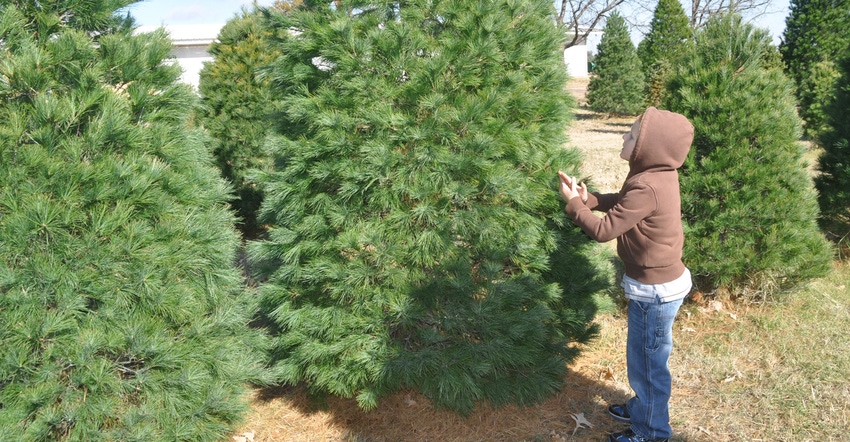
Christmas tree farming is a real, if niche, industry in Kansas.
It wasn’t until 1959 that it was even an idea that Christmas trees (other than the occasional farm-cut Eastern Cedar) could be grown in Kansas. Then, Cecil Delp in Stafford County started a tree farm, growing Scotch pines.
Now operated by his son, Tony, Delp Farm is a standout Kansas Christmas tree farm and one of the few to grow firs in addition to pines. Most Kansas Christmas tree farms grow Scotch, Austrian and white pines.
From that humble start has grown the Kansas Christmas Tree Growers Association, a group of 34 farms across the state, primarily in eastern Kansas, with Delp still being the only farm in western Kansas. The group has a coordinated goal of encouraging the niche industry and educating consumers about the industry and the advantages of buying a homegrown tree.
Trees harvested in Kansas also provide Kansas residents with the knowledge that they are supporting Kansas agriculture.
"I think a lot of people think of agriculture just as the kind of crops that my parents grew — soybeans, milo and wheat," says Ardie Goering, who with her husband, Wynn, operates Pine Creek Farm near Goessel on land her family has farmed for generations. "I take pride in knowing that this farm is still productive even though we are no longer growing those crops."
The Kansas Christmas Tree Growers Association is affiliated with the national organization, which in recent years approved establishing a checkoff program to fund research and marketing. One of its stated missions is educating consumers about the industry.
"A lot of people think that cutting down trees for Christmas trees is a ‘waste’ because it removes trees that could live for decades," Goering says. "That is misleading. These trees are grown for harvest and the constant replanting of trees is good for combating global warming and sequestering carbon. The consistent replanting and growing of trees is very positive for the environment."
Many people also incorrectly believe that real Christmas trees are more likely to catch fire than artificial trees. In fact, the dust that accumulates on artificial trees is quite flammable, and pre-lit trees are even more likely to catch fire as the wiring in the lights degrades from repeated assembly and dis-assembly.
The chemicals used in the manufacture of artificial trees can also present a hazard. Most artificial trees are manufactured in China, which means the jobs created in their manufacture add nothing to the U.S. economy. Farm-grown trees, however, provide both jobs and benefits to the U.S. economy.
Homegrown Christmas trees are widely delivered to recycling sites which turn them into mulch that home gardeners can pick up and use in their gardens. Others are donated to wildlife sites to be sunk into lakes and used for sites where hatchling fish populations find shelter.
The point, Goering says, is that native Christmas trees provide benefits to the local economy, the local ecology and the local society.
"We love knowing that we are part of the experience," Goering says.
Check out this interactive map to help locate a Kansas Christmas tree farm near you.
About the Author(s)
You May Also Like




